The Raine Study: A Valuable Resource for Researchers
Explore the Raine Study, established in Perth (1989-1991), a multigenerational longitudinal research study, aiming to improve human health and well-being by studying the life course of a cohort of ‘Western Australians’. This pioneering study, among the largest of its kind globally, focuses on understanding the multifaceted interactions of genetics, environment, behaviour, and developmental outcomes to advance human health and well-being. Consequently, it is an enabling platform offering limitless opportunities for researchers to access rich and valuable sources of evidence about the developmental origins of health and disease from pre-pregnancy into adulthood and older age.
As custodians of this data, we are committed to facilitating access to this extensive dataset, and empowering innovative research initiatives.
To learn more about our history go to the About Us page
From Pregnancy to Parenthood
The Raine Study is not just a snapshot in time; it’s a living timeline of human development spanning four generations:
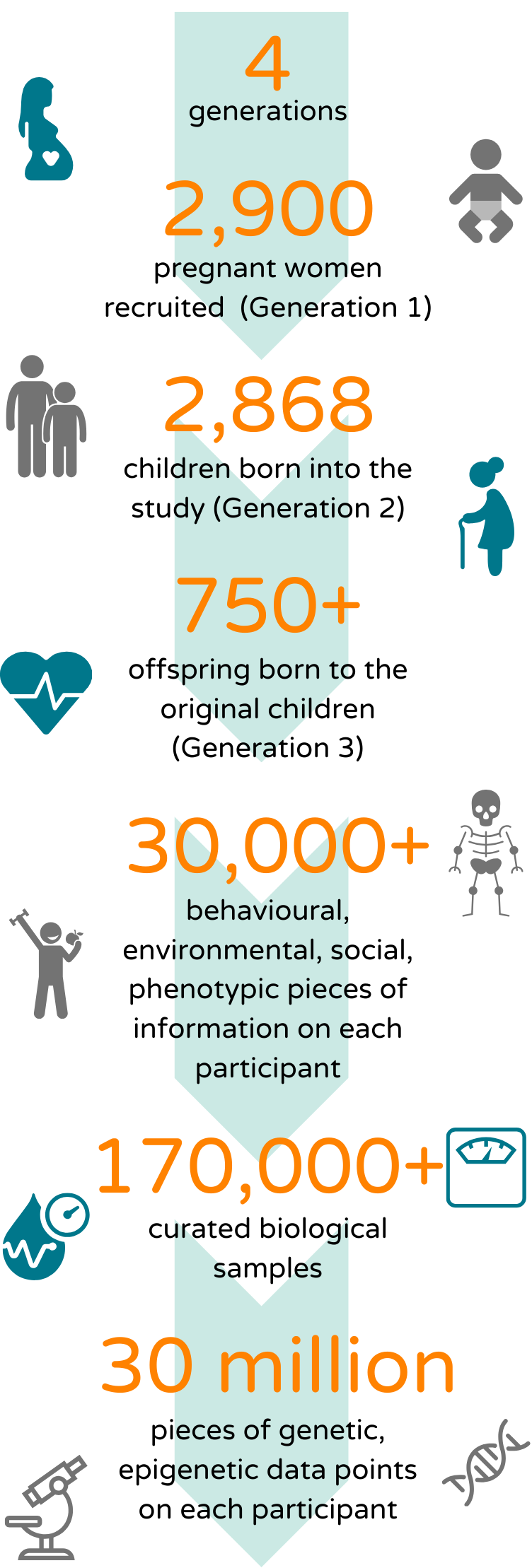
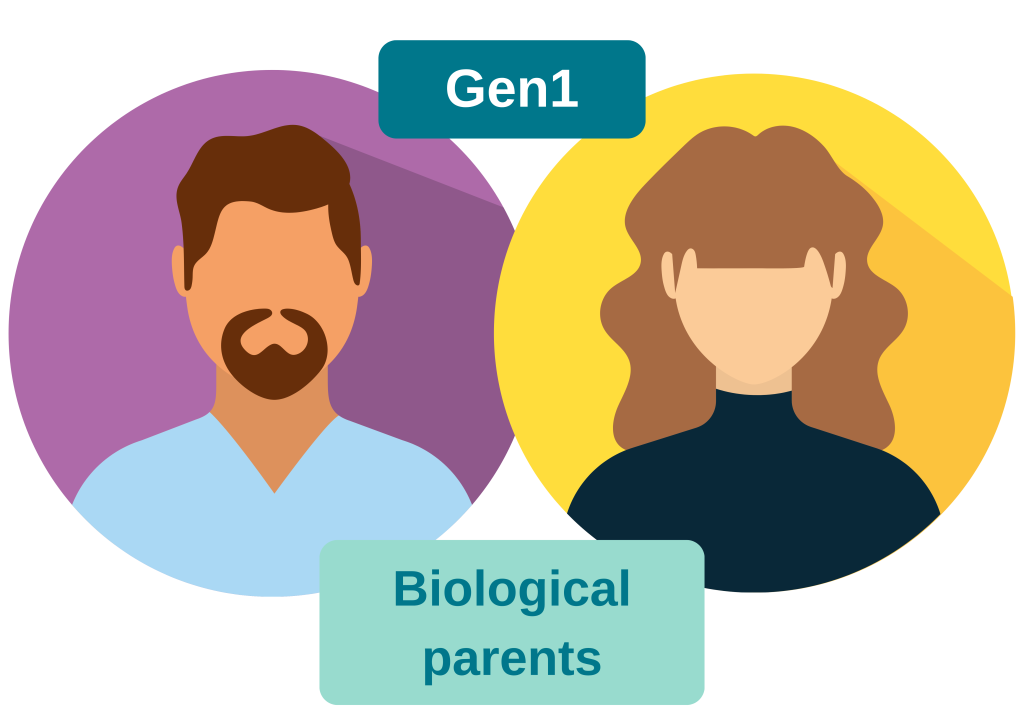
Gen1: The Pioneering Parents
The Gen1 biological parents initially recruited during pregnancy have been indirectly involved across 12 follow-up studies and assessed for essential demographic, sociodemographic, and anthropometric health parameters relating to the Gen2 participants. In 2016, they were recruited for the first follow-up which focused only on their health and social wellbeing, independent of their Gen2 child.
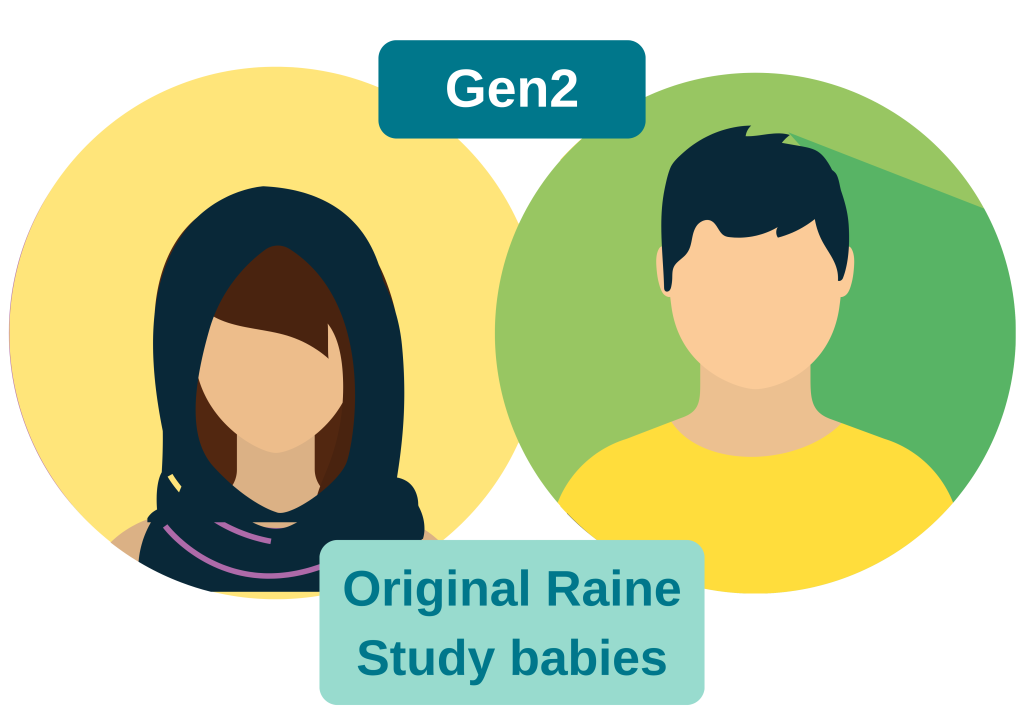
Gen2: The Study’s Foundation
Born into the study, Gen 2 participants have undergone 17 follow-ups from infancy into adolescence and now adulthood. They have been comprehensively phenotyped through questionnaires, clinical parameters, and data on genetics, such as GWAS, exomes, telomeres, and epigenetic profiles are available
Now including Gen2B, the biological parents of Gen3 that was not born into the Raine study, enriching the dataset with a comprehensive familial perspective.
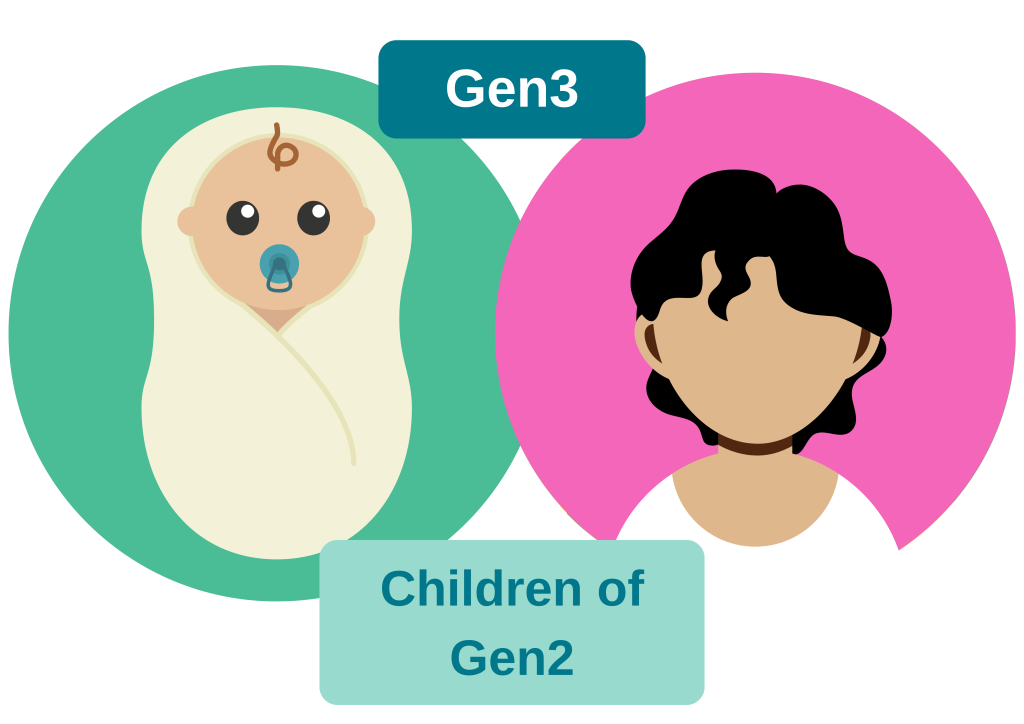
Gen3: The Next Generation
Gen3 are the children of Gen2 and Gen2b recruited into the study, offering new insights into the continuity of factors influencing health across multiple generations. Recruitment of Gen3 began in 2024.
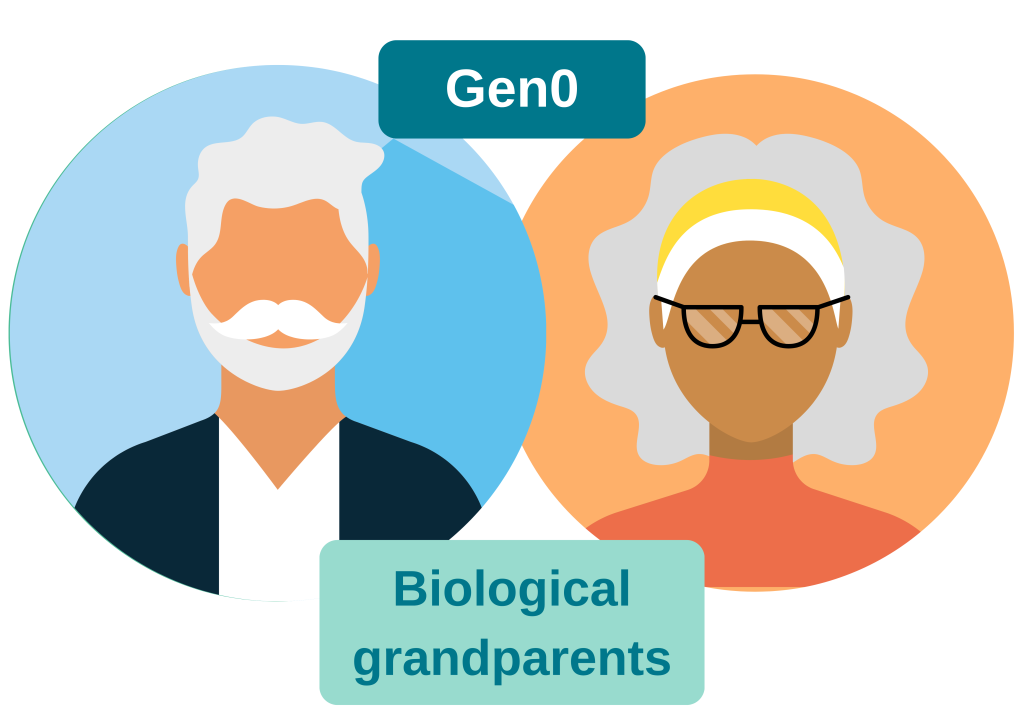
Gen0: The Biological Grandparents
Gen0 represents the biological grandparents of Gen2. Limited data has been collected as part of specialised sub studies.
Follow Ups
Data and Bio-samples Collection and Follow-Ups
The Raine Study’s strength lies in its 17 follow-ups conducted across four generations, establishing it as one of the most comprehensive pregnancy birth cohort studies globally. Each follow-up involves meticulous data collection, including questionnaires, physical assessments, and biological measures (Biological samples include antenatal blood, cord blood, placenta, milk teeth, blood, saliva, urine and DNA) across diverse categories called Special Interest Groups:
- Biological resources
- Cardiometabolic
- Cohort methods
- Diet
- Education and work
- Environmental and perinatal exposures
- Genetics
- Health risk behaviour
- Hormonal and reproduction
- Mental health and cognition
- Musculoskeletal
- Respiratory, immunology and inflammation
- Senses
- Sleep and activity
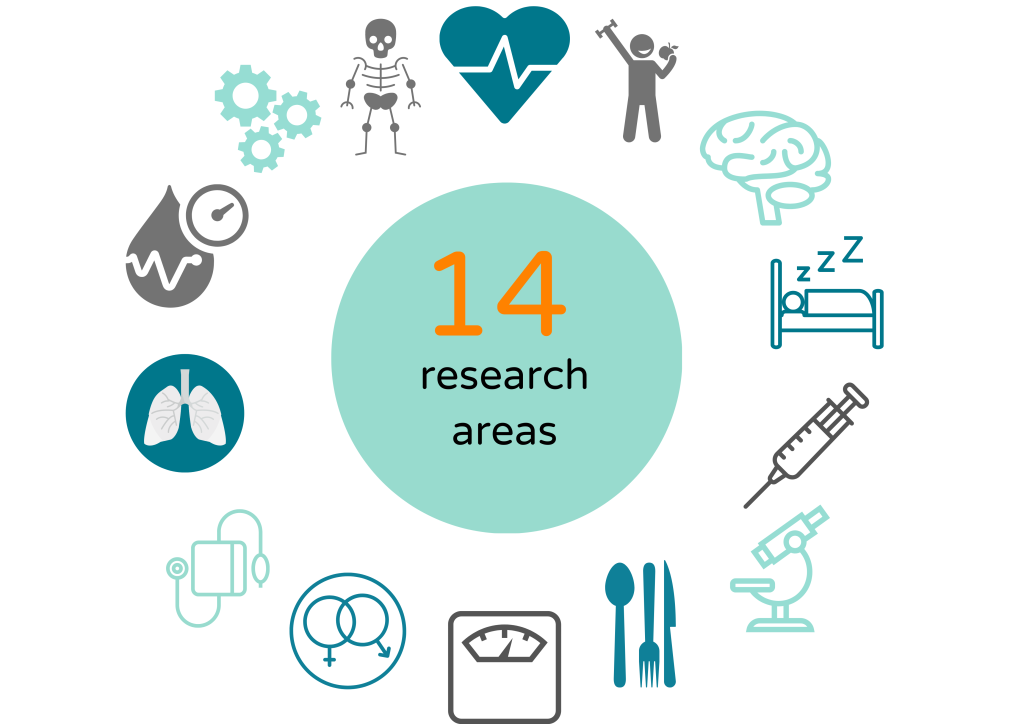
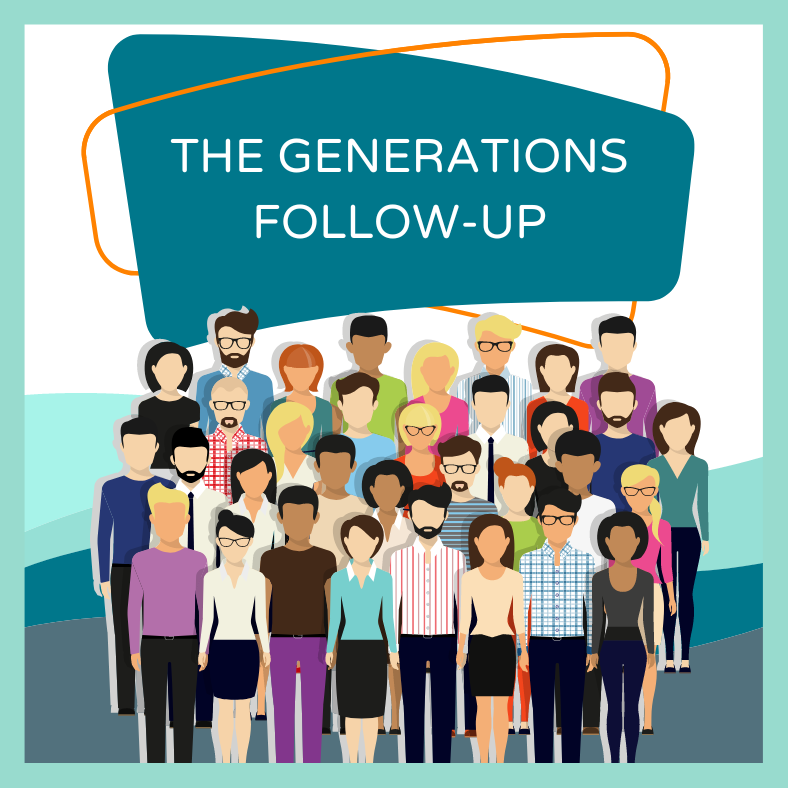
The Generations Follow-Up
The Generations follow-up (18) has been initiated, encompassing Gen1 and Gen2 participants. Notably, Generation 3 recruitment has commenced for the offspring of Gen2 participants. Data collection for this follow-up began in April 2023. For further details, visit The Generations Follow-Up (Researchers).
Next step
Want to use the Raine Study in your research:
Explore the application process on the Project Application page to access our invaluable dataset, unlocking potential for ground-breaking research.
Study Registration
The Raine Study is registered in the Australian New Zealand Clinical Trials Registry.
Trial ID: ACTRN12617001599369.
